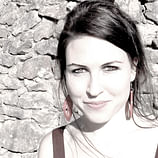
Cape Town, ZA
UCT was founded in 1829 as the South African College, a high school for boys.
The College had a small tertiary-education facility that grew substantially after 1880, when the discovery of gold and diamonds in the north – and the resulting demand for skills in mining – gave it the financial boost it needed to grow.
The College developed into a fully fledged university during the period 1880 to 1900, thanks to increased funding from private sources and the government.
During these years, the College built its first dedicated science laboratories, and started the departments of mineralogy and geology to meet the need for skilled personnel in the country's emerging diamond and gold-mining industries.
Another key development during this period was the admission of women. In 1886 the Professor of Chemistry, Paul Daniel Hahn, convinced the Council to admit 4 women into his chemistry class on a trial basis. Owing to the exceptional standard of work by the women students, the College decided to admit women students permanently in honour of Queen Victoria's Diamond Jubilee in 1887.
The years 1902 to 1918 saw the establishment of the Medical School, the introduction of engineering courses and a Department of Education.
UCT was formally established as a university in 1918, on the basis of the Alfred Beit bequest and additional substantial gifts from mining magnates Julius Wernher and Otto Beit. The new university also attracted substantial support from well-wishers in the Cape Town area and, for the first time, a significant state grant.
In 1928, the university was able to move the bulk of its facilities to the magnificent site at Groote Schuur on the slopes of Devil's Peak. It was here, on land bequeathed to the nation by Cecil John Rhodes as the site for a national university, that UCT celebrated its centenary the following year.
"Moscow on the Hill"
Apart from establishing itself as a leading research and teaching university in the decades that followed, UCT earned itself the nickname "Moscow on the Hill" during the period 1960 to 1990 for its sustained opposition to apartheid, particularly in higher education.
The university admitted its first small group of black students in the 1920s. The number of black students remained relatively low until the 1980s and 90s, when the institution, reading and welcoming the signs of change in the country, committed itself to a deliberate and planned process of internal transformation.
From the 1980s to the early 1990s, the number of black students admitted to the university rose by 35 percent. By 2004, nearly half of UCT's 20 000 students were black and just under half of the student body was female. Today we have one of the most diverse campuses in South Africa.











